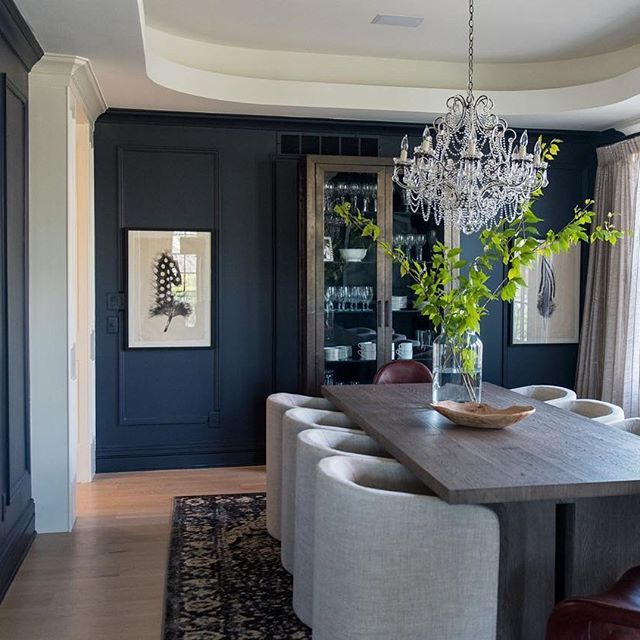Make your dining spaces more useful and stylish in 2020 with these ideas.
By Tammy Adamson-McMullen
Dining rooms are utilitarian by their very nature, but that doesn’t mean they need to forgo form for function. In fact, the more beautiful a dining room is, the more useful it is, making food more appetizing, family time more satisfying and entertaining more enjoyable.
Below are 10 ideas to help you create useful and stylish dining areas.
1. Garden Dining
To create the feel of al fresco dining without the chilly temperatures, think “green” in your dining spaces. Paint an accent wall in the green of your choice, maybe hunter green or apple, or paint the entire space in green, maybe a more subtle color like silvery sage. Infuse the area with botanicals in your wallcovering, china and fabric patterns, and sprinkle potted plants throughout the space. Balance the abundance of green with clean white or light floral accents.
2. Dark and Moody
If you enjoy a bit of drama, this style is for you. To create it, select a paint color that works with the rest of your home’s scheme and darken it. Then paint all of the walls in your entire dining area in that color. Dark blues, greens and grays work well in this style, with matte finishes heightening the moody effect. Brighten the space with lighter wood tones in your flooring and furniture pieces. Remember: Dark colors and matte finishes absorb light, so make sure your dining area has enough light sources to make eating and entertaining comfortable.
3. Lighter and Brighter
Most dining areas are too dim to accommodate the activities that take place there. If yours is one of them, try switching out the bulbs in your main lighting fixture for bulbs with more lumens. Then add as many light sources as the space—and good decorating sense—will allow. These might include table lamps (on top of the buffet); floor lamps (for dark corners), canned lighting (around the room’s periphery), spotlights (over artwork or within china cabinets) and mirrors (to reflect the light). For extra sparkle, add battery-powered twinkle lights to your tabletops and centerpieces.
4. Monochromatic
Monochromatic color schemes are easy on the eye and also easy to create. They are formed from a single base hue and then extended with light and dark variations of that hue, such as white-on-whites, taupe-on-taupes, blue-on-blues and so on. The beauty of monochromatic schemes is that they allow other items in the room to take center stage, such as artwork, treasured dishes, or the fabulous meals you serve! The best paint finishes for this soft scheme are satins and pearls. For more punch, select ceiling paint in the same color but in a glossier finish.
5. Bright and Bold Color
Maybe your color preferences are like your cooking: bold and bright. If so, then include a pop of color somewhere in your dining area. Paint the trim in your favorite shade of cobalt blue, for example, or install yellow-saturated wallcovering above a chair rail. If the color is particularly strong, you may want to use it judicially. But even in small doses, such as in linens or chair fabrics, a vibrant color will naturally take a dominant role and make the room seem more vibrant.
6. Metallic Shine
If your dining area is lackluster, then add some shine! Try adding metallic wallcovering—one that either has a metallic print or an all-over metallic hand—or incorporate a decorative paint finish, such as a metallic glaze or plaster. Metallic finishes look especially stunning on the ceilings of formal dining rooms. You also can add shine with your choice of window treatments. Select fabrics that have metallic threading and drapery hardware that has some bling, like polished metal rods or crystal finials.
7. Visual Interest
Another way to liven up a dining room is with an interesting print or pattern. Wallcoverings may be the natural choice here, but they aren’t the only option. Murals and tapestries, which add visual interest through their depictions of landscapes, time periods or story scenes, are trending throughout residential designs and in all homes of all styles, from traditional to cottage, mid-century modern to contemporary.
When adding an item of visual interest, don’t go overboard. Try to keep the “busy-ness” to a minimum.
8. Mash-Ups
For an eclectic ambiance in your dining space, mix up old and new styles together—for example, antique furniture with contemporary wallcovering, or Old World faux finishes with an Art Deco area rug. Mash-ups can be orderly in presentation or wildly Bohemian. Regardless, this style has an obvious advantage in that you don’t have to worry about having all-matching serving pieces at large dinner parties and family gatherings. The more the mash-up, the better!
9.Comfy and Cozy
Dining rooms don’t have to be formal. If your decorating style leans toward cozy and comfortable, then your dining room should follow suit. To cozy up your space, incorporate soothing mid-tone colors, warm woods, natural textures and, most importantly, comfortable seating options for you and your guests. In lieu of chairs on one side of the table, use a sofa instead. And as a finishing touch, place a throw blanket on the back of the sofa, and one on the back of each seat, so that guests can snuggle in as they chat after the meal.
10. Unbroken Circles
The most inviting dining rooms are those that visually “round up” guests. Circular and oval tables are especially good at this; but if your table is square or rectangular, you don’t have to buy new furniture. Instead, install a large round lighting fixture above the table and chairs—a globe pendant, for example—and place a large round or oval area rug beneath them. Accentuate the effect with geometric wallcoverings that have a circular pattern; large circles are very en vogue at present. Then place round placemats on the table. Finally, sit back and observe as your friends and family naturally gravitate to this “unbroken circle” effect.
Bon appetit!

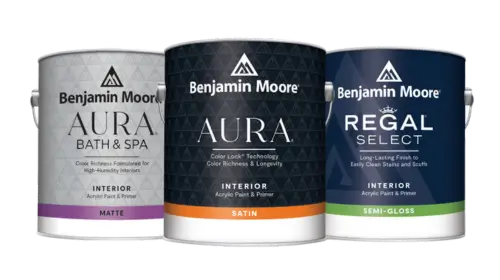 Interior Paints
Interior Paints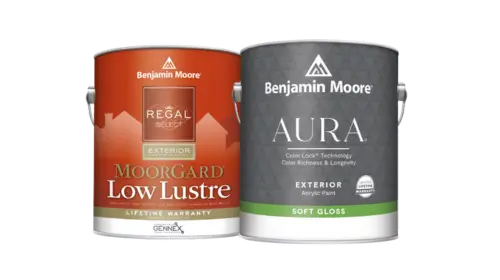 Exterior Paints
Exterior Paints Primers
Primers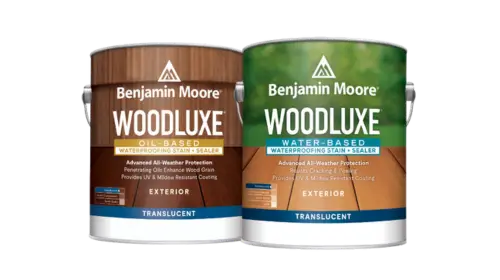 Stains & Clears
Stains & Clears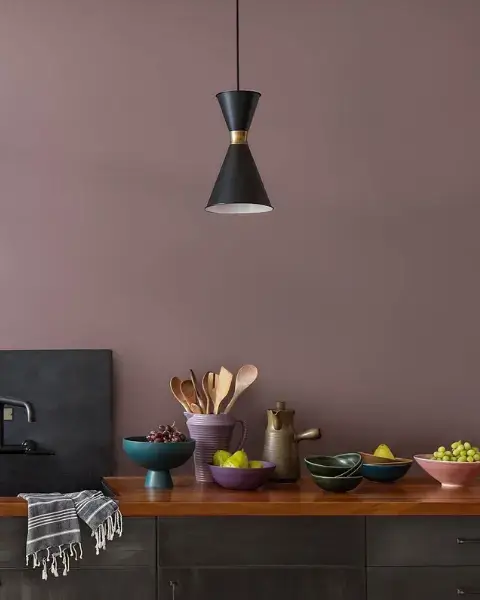
 Paint Brushes
Paint Brushes Paint Roller
Paint Roller Paint Trays & Liners
Paint Trays & Liners